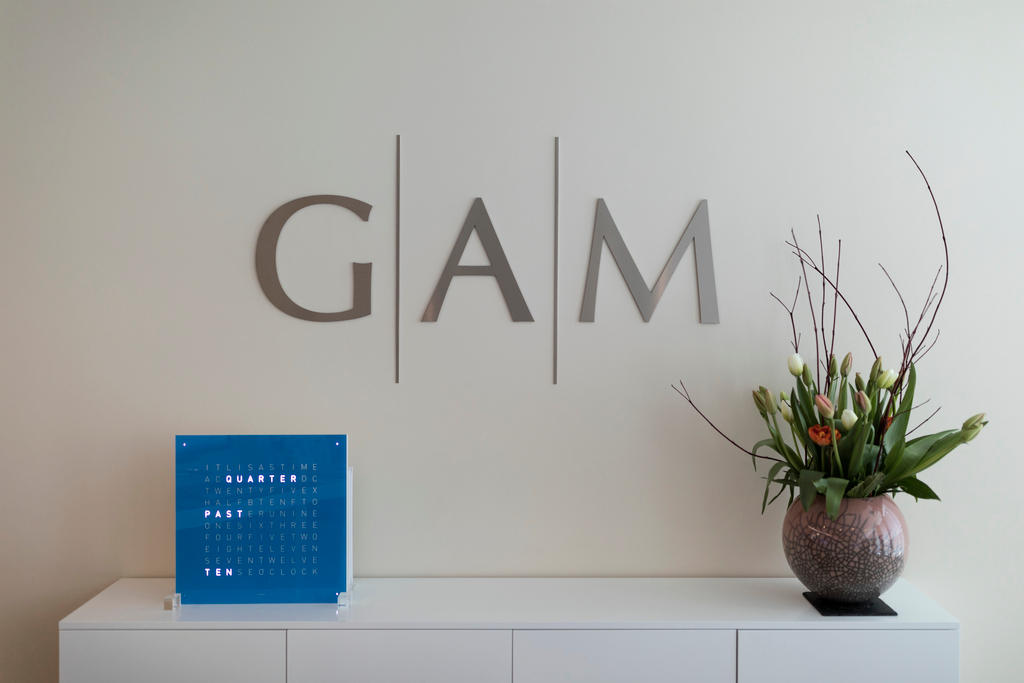GAM: hard times on Hardstrasse

Prime Tower, a glittering skyscraper on Zurich’s Hardstrasse, is usually a place of relative calm and Swiss efficiency. One week ago, however, employees of asset manager GAM arrived to find the normally sedate atmosphere replaced with bedlam.
An hour before markets opened, Zurich-listed GAM, which also has large operations in London, stunned investors and the wider asset management community by suspending one of its best-known portfolio managers following an internal probe.
“The office was in meltdown,” says a GAM employee. Some London workers were blindsided by Tim Haywood’s suspension and staff were warned not to speak to the media.
GAM then took the rare move of blocking investors from pulling money from the absolute return bond funds linked to Mr Haywood, after it was hit by a wave of redemption requests in excess of 10 per cent of the strategies’ assets. News the funds had been “gated”, which was only made public two days later, triggered yet another lurch down in the shares.
In the days since, chief executive Alexander Friedman and chairman Hugh Scott-Barrett have attempted to reassure investors and clients. They have met with analysts and spoken to large shareholders in an effort to stem the panic. The company has also issued multiple letters to clients and a Q&A to provide further information.
Hard questions
But for many shareholders and clients, GAM’s future is far from clear.
In the short term, analysts expect GAM to be shrouded in uncertainty for weeks, if not months, as it winds up its internal investigation into Mr Haywood and the impact of his suspension becomes more apparent. According to GAM, the investigation relates to his risk management procedures and record keeping. Mr Haywood has not responded to requests for comment.

The company’s board faces questions about whether redemption requests will spread to other GAM funds, whether the business failed in its supervision of the absolute return bond funds and whether Mr Friedman – whose tenure has been marred in controversy – can survive the crisis.
“There are very significant uncertainties [about] what is going to happen,” says Andreas Venditti, senior analyst for banks and asset managers at Vontobel. Its reputation is “clearly damaged”, he adds.
Mr Friedman, who joined from UBS Wealth Management in September 2014, arrived into a business in the midst of change.
Founded by the late Gilbert de Botton, GAM had grown to become one of Switzerland’s best-known and well-regarded fund houses, known for its hedge funds and absolute return strategies. After a tumultuous decade, where it was sold to UBS, then Julius Baer, the Swiss banks, it went public in 2009.
Mr Friedman’s arrival promised a shake-up of a stale business. The American quickly ditched the company’s various brands, uniting them under the single GAM name, and also unveiled a cost-cutting programme.
Activist investor
But less than two years after Mr Friedman, who based himself in London rather than Switzerland, took the helm, the company warned its profits for the first half of 2016 would halve, sending its share price down 18 per cent.
Shortly afterwards, RBR Capital, an activist investor, started buying up its shares. A protracted boardroom battle ensued over the company’s strategy. RBR called for a radical overhaul of the asset manager, including cutting executive pay and staff numbers, revamping its board and firing Mr Friedman. It was also critical of the 2016 purchase of Cantab, a UK hedge fund.
Mr Friedman, however, rose to the challenge. At GAM’s annual meeting in April last year, he narrowly saw off the activist after gaining the backing of its largest shareholder, Silchester International Investors, which held 19 per cent of GAM’s voting rights at the time. Despite a shareholder revolt over pay, investors rejected RBR’s attempts to overhaul the board. Some 43 per cent of votes cast were in favour of the election of Kasia Robinski, the private equity veteran RBR nominated.
GAM’s financial performance was also improving. The 2017 first-half results beat expectations, with underlying pre-tax profits up 37 per cent. Its turnround plan that involved outsourcing middle and back office jobs also began to bear fruit. By the end of the year, its share price was up by a third.
Unhappy investors
The activist battle, however, had knocked Mr Friedman’s confidence, according to people close to the chief executive. Since then, the keen climber has kept a lower profile.
Now he is back in the spotlight like never before. Weeks before Mr Haywood’s suspension, the company was forced to issue a profit warning after disclosing a hefty write-off related to its purchase of Cantab.
Tomasz Grzelak, analyst at Baader Helvea, says it is “unfortunate” that the company has been hit with weak financial numbers, the impairment, the suspension of the portfolio manager and the gating of funds in such a short timeframe. “Investors are not happy.”
“I never had such a case in my career,” he says. “At the moment the most important issue is the fund suspension case. The problem is there is a lot of uncertainty about what the real outcome of that will be. There have been substantial outflows. The question is what happens next? Will they open the fund again and will there be more redemptions?”
Several analysts covering the company criticised GAM’s handling of recent events, questioning in particular why it told the market before its investigation had been concluded. They also expressed concerns that staff could desert the company.
Bad handling?
Rudolf Bohli, founder of activist RBR, which has sold its holding in GAM, also condemned management, pointing out they should have expected institutional investors to withdraw their cash on the news of Mr Haywood’s suspension.
“On one hand, you say he is an honest person. But then you suspend the guy. What does this tell you about management? Was there no other way they could have handled this? Of course, there was another way of handling this.”
GAM counters that the majority of its investigation was concluded when it announced the suspension, with just internal disciplinary procedures pending.
A person close to the company says it was a difficult decision to suspend Mr Haywood. “It was a case of damned if you do, damned if you don’t.”
Mr Friedman said the company took “workplace conduct and culture extremely seriously”.
”Central to this entire episode has been our focus on putting culture and conduct ahead of short-term commercial interests. We understand the implications of that for our clients but we believe it is the right way to run an asset management business and build long-term trust,” he added.
Shattered credibility
But one analyst, who asked to remain anonymous, says it has become difficult to see how Mr Friedman can retain his job. “This has shattered all hopes of his credibility,” said the analyst.
As well as questions about Mr Friedman, one industry veteran said recent events, including the scale of the write offs linked to Cantab, has also raised questions about the board’s competence.
“The speed of the recent fall in its share price suggests that it may be just a matter of time before we see a ‘for sale’ sign,” he adds.
Several analysts said that while the current low share price would be attractive for buyers, big shareholders are likely to be unwilling to sell until the value increases. The company declined to comment when asked if it had held discussions about a potential sale.
The future of Mr Friedman and the board rests on the views of three Anglo-American shareholders. A quarter of the company is held by Silchester, Kiltearn Partners and T Rowe Price. The trio declined to comment.
Friedman answers
Mr Friedman has defended his role. He told the Financial Times last week: “I am absolutely committed, the whole management team is committed and the board is committed.”
In a statement to the FT this week, Mr Scott-Barrett said: “The board is engaged closely in the oversight of recent events and absolutely believes the executive team has the interests of our clients and shareholders at heart.
“We are in active dialogue with shareholders and clients. Right now, it is in everybody’s interest that the team continues to focus on resolving this issue.”
For now, GAM says it is focusing on winding up its investigation. In client letters issued over the past week, it said Mr Haywood had not departed from a legitimate investment strategy. But it also accused the GAM veteran of poor due diligence, breaches of its gifts and entertainment policy and inappropriate use of personal email.
“Fairweather” Friedman hits stormy waters
GAM chief Alexander Friedman was branded a “fair-weather captain”, as investors and analysts questioned whether the keen climber is the right man to lead the Swiss asset manager through its crisis.
An analyst who covers the company, but asked to remain anonymous, said: “He’s a fair-weather captain – he looks good when the sun is shining and the sea is calm. But now they have pretty stormy waters that need navigating.
“There are some investors who are putting pressure on him to leave. He is definitely more on the watch list than he was before. There are a lot of Swiss fund managers watching him quite critically.”
Mr Friedman has faced criticism in the past, but analysts say he often deflected condemnation by blaming problems at the company, such as over-staffing and inefficient IT systems, on how GAM was managed in the past.
But one analyst who did not want to be named said it would be much harder to deflect the criticism this time. “This discrepancy came on his watch. It makes it very difficult for him to go on.”
Another analyst added: “I suspect that there would have to be a very benign resolution to these problems for him to stay in the long term – and you would have to be very optimistic to expect that.”
Copyright The Financial Times Limited 2018.

In compliance with the JTI standards
More: SWI swissinfo.ch certified by the Journalism Trust Initiative
You can find an overview of ongoing debates with our journalists here. Please join us!
If you want to start a conversation about a topic raised in this article or want to report factual errors, email us at english@swissinfo.ch.